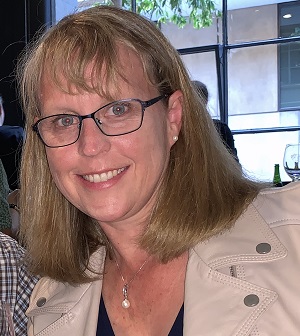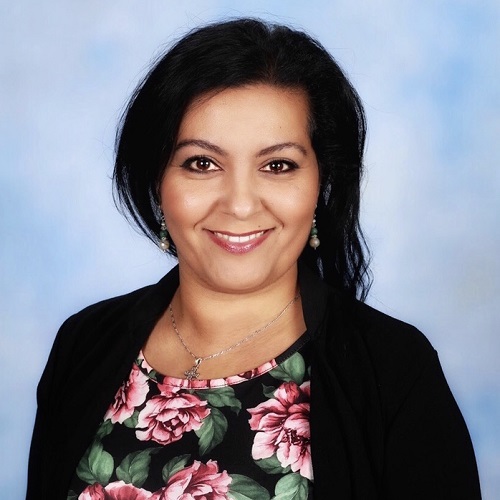
K-6 Program & Presenters
9:20 - 10:00 am (RBG) / 8:45 - 9:20 am (Online)
K-6 TeachMeet - General Capabilities Showcase
TeachMeet 1: Project Codium: Using Design Thinking in Environmental Conservation
Royal Botanic Gardens
(Creative and Critical Thinking)

In this TeachMeet presentation, we will discuss how design thinking methodologies can be applied to inspire students to think critically and creatively about environmental projects in the context of the Royal Botanic Garden's upcoming Project Codium initiative.
TeachMeet 2: STEM outreach in primary schools: online and back again
Dr Marco Angelini, UTS
(Information Communication Technology, Numeracy)
This session will demonstrate resources and approaches developed for STEM x Play, a multi-touchpoint design thinking program which aims to engage stage 3 students in creating authentic solutions to real world problems. Participants will hear about the experience of transitioning program delivery through face to face, blended and online facilitation in response to COVID restrictions, and will have a chance to sample the resources and methods used alongside student Ambassadors.
Presenters will discuss some of the feedback from program delivery as well as leading a discussion on how teachers can integrate educational technologies in to their practice using creative approaches to engage students in this stage.

Dr Marco Angelini is currently the Outreach Coordinator for UTS Women in Engineering and IT. His professional background is in academic skills development, educational equity and the transition to higher education; he has taught in humanities and science subjects at London School of Economics, Queen’s University of Belfast and University of Technology Sydney. While at University College London he set up and managed student engagement and equity projects including the Transition Programme, some of which have been recognized in national awards schemes; at UCL he was Director of the UK National Transition Conference from 2007-2012. His research interests and record of publications includes work on student engagement, academic literacies, philosophical thought and history.
TeachMeet 3: Design Thinking in the Early Years
Michelle Lothian & Fiona Morrison
Inaburra School
(Creative and Critical Thinking)
In this TeachMeet-style presentation, presenters will be showcasing how to introduce and explore the Design Thinking Process in a Stage 1 classroom. The presenters will share a case-study of Design Thinking within their Year 1 classrooms aligning with our Science Unit, and then participants will be guided through the Design Thinking Process with a picture book stimulus. They will discuss how the Design Thinking Process could be assessed at the end of a unit of work.
Michelle Lothian is the stage coordinator for Early Stage 1 and Stage 1 at Inaburra School. She has over 17 years of experience teaching infant students. Michelle has a passion for special education and inclusivity in the Early Years.
Fiona Morrison is an Infants Teacher at Inaburra School. She has worked with children in a variety of contexts for over 15 years. Fiona is the Founder of STEM | ED Magazine.
10:05 - 10:25 am (RBG) / 9:20 - 9:30 am (Online)
Morning Tea - Calyx Garden and Café
10:30 - 11:30 am (RBG) / 9:30 - 10:30 am (Online)
Curriculum aligned lessons from the Schools Weather and Air Quality (SWAQ) citizen science project
Miss Katie Quail & Dr Angela Maharaj
Climate Change Research Centre (CCRC) at UNSW
(Numeracy and Critical and Creative Thinking)
This activity will provide practical examples of innovative ways to incorporate general capabilities into regular science and mathematics lessons. The presentation will begin with an introduction explaining the general aims of the SWAQ citizen science project. Following this, participants will form small groups in which they will analyse selected lesson plans from SWAQ to see how they have incorporated general capabilities. Participants will then share their analysis with the rest of the group. To conclude, there will be a whole group discussion in which participants can give feedback on the lessons and suggest their own improvements.

Katie Quail is an educational content developer for the Schools Weather and Air Quality (SWAQ) citizen science project run by the Climate Change Research Centre at UNSW. As part of this role I have been developing curriculum aligned lessons that incorporate the weather data collected from SWAQ stations and help to teach kids about weather and climate. I have a Masters of Teaching (Secondary) and have worked as a high school maths/science teacher in both Australia and the UK. Currently, I am also doing a PhD in climate science with the CCRC.

Angela Maharaj is a lecturer in the Climate Change Research Centre, School of BEES at UNSW Sydney. Her job includes a wide variety of activities from trying to understand the role of the ocean in climate variability, university learning and teaching and STEM outreach engagement around meteorology, oceanography and climate science. She is passionate about science literacy and is involved in several initiatives which aim to improve links between schools, universities and science research. Angela is also the President of the Australian Meteorological and Oceanographic Society.
10:30 - 11:30 am (RBG) / 9:30 - 10:30 am (Online)
The Power of Because?
Mrs Jacqueline McCarthy & Mrs Sophie Burnett
Abbotsleigh School for Girls
(Creative and Critical Thinking)
Developing an environment of Critical thinking during hands on activities, focusing on skills and how we consider them over the stages.
In-person session will have two hands on activities. One outside in the garden and one inside looking at mixtures. Activities will be adjusted for the online session
Critical thinking is at the heart of scientific inquiry. A good scientist is one who never stops asking why things happen, or how things happen.
Scientific inquiry includes three key areas:
1. Identifying a problem and asking questions about that problem
2. Selecting information to respond to the problem and evaluating it
3. Drawing conclusions from the evidence (Cambridge University Press, 2021)
There will be a number of hands on experiments and attendees will be asked to respond from their student’s point of view. They will be identifying the problem, selecting information to respond to the given problem and then drawing conclusions.
Cambridge University Press, 2021:
https://www.cambridge.org/us/education/blog/2018/10/18/teaching-critical-thinking-science-key-students-future-success/
Sophie and Jacqueline both have Science degrees and share the role of teaching primary school science to the stage 1 - 3 girls at Abbotsleigh.

Jacqueline started her teaching career as a high school Science and Agriculture teacher. In 2014, she started to volunteer to teach primary school science one day a week. It was during this time that she realised that helping primary school aged students to look at the work around them to be very awarding. Jacqueline returned to university to complete her primary teacher KLA subjects and has spent the last 4 years teaching stage 2 and 3 science.
From a young age Sophie was inspired to love the natural world by her parents and particularly her grandparents, who were both scientists. Sophie studied environmental science at UNSW and, after graduating, she wanted to educate and inspire young children by choosing to pursue a career as a teacher. Sophie completed her Masters of Education at USYD and taught for years as a classroom teacher and now teaches science at Abbotsleigh.
11:40 - 12:40 pm (RBG) / 10:45 - 11:45 am (Online)
Evidence of Impact - Assessing deep learning in K-6 Science and Technology
Ms Kathryn Newton & Penny Vlies (Manager, CEO)
NSW DoE : Curriculum General Capabilities Unit, Department of Education
(Creative and Critical Thinking)
This workshop will provide models of assessment for deep learning in Science 7-10 syllabuses. These models form part of the NSW Department of Education Quality Teaching Unit General Capabilities Critical and Creative Thinking in Practice program, working with more than 100 schools statewide. Participants will learn how to detect deep learning in student work and develop teaching and learning activities that target deep learning syllabus outcomes.
Benefits for participants:
• links to the research and evidence base for deep learning
• teaching and learning illustrations of practice
• advice on sequences of learning
• practical tools to evaluate the impact on student learning
This interactive workshop responds to curriculum reform recommendations, prioritising depth over breadth and focusing on more time for teaching the core concepts and content.
Kathryn is a Curriculum Advisor with the NSW Department of Education Quality Teaching Practice Unit, Curriculum General Capabilities team. She is also a committee member for STANSW and the convenor for the Hunter Head Teacher Network. Kathryn is an experienced science teacher who has designed, developed, and delivered professional learning on the general capabilities across the state. She brings expertise in assessing student thinking.
10:45 - 11:45 pm (Saturday only)
Critical and Creative Thinking in the Making!
Ms Maria Emmi - Loreto Junior School
(Critical and Creative Thinking, ICT)
Approaching the integration of the Digital Technologies curriculum by engaging students in a design and make collaborative project allows students to be creators and not just consumers of digital technology. Stage 2 students developed an understanding of the design process by producing a prototype for a fantasy animal toy using 3D design with Tinkercad and applying computational thinking with the BBC Micro:bit. Students developed their critical and creative thinking whilst working collaboratively through the process. In this presentation / workshop you will be shown the technologies, the process and how you could implement a similar project.

Maria is currently the eLearning Teacher Educator at Loreto Kirribilli. She coordinates ELearning integration in the Junior School and is part of the K-12 Loreto Kirribilli Innovation and eLearning team. She has been responsible for the integration of eLearning and emerging technologies for over 12 years, engaging highly creative uses of technology in the classroom. She continually explores and models next practice, sharing with teaching staff ideas and pedagogies for use in all Key Learning Areas. Maria is passionate about supporting staff with integrated programs that harness the use of digital technology through STEM, inquiry based and Project Based Learning opportunities. Always endeavouring to incorporate digital technology in ways that can intrinsically motivate students, create student agency and provide differentiated learning opportunities.
11:40 - 12:40 pm (Wednesday only)
Incorporating literacy and numeracy in primary school science lessons
Mrs Annie Martin & Claire Elliott
PLC Sydney
(Literacy and Numeracy)
Primary school science is best taught using appropriate contexts for the students. When integrated with literacy and numeracy opportunities, the value of the lessons is greatly improved. In this workshop, delegates will be given the opportunity to trial specific examples of such lessons.
Good units of work in Science have a suitable context. Childrens’ picture books are a fabulous, accessible context for all teachers and students. Literacy and Numeracy needs to be integrated wherever possible in Primary School learning for the skills to be developed as required.
In this workshop, presenters will demonstrate how a list of childrens’ books has formed a unit of work in Science called ‘Saving Shorebirds’ that have been taught to Year 4. Presenters will show these books and how each leads to specific sections of the unit of work and how both literacy skills and science skills are developed. Presenters will demonstrate how informative and persuasive writing tasks can be incorporated into this learning.
Presenters will bring a collection of childrens’ picture books and allow the participants to read and postulate how they could incorporate these into Science Units of work. Presenters will provide contexts and syllabus links and the activities that can be used to link these, exploring also how the school librarian can assist in finding suitable books for science units of work.

Annie Martin is the Junior School Science Co-ordinator at PLC Sydney. She is passionate about making Science accessible to all students and she designs innovative and relevant contexts for inquiry based learning.
Annie began her teaching career as a high school Biology and Chemistry teacher. However, as the years progressed, she became drawn to the naturally inquisitive minds of young children and decided that it was with these younger children that she could truly make a difference.
Annie aims to make all her students scientifically literate but also thoroughly enjoys mentoring her students with extra-curricular science projects. Annie’s students have had great success in the Eureka Sleek Geeks Competition, most notably with the national winners in 2017, 2018 and 2019. Annie is a teacher at MindQuest and she has also had significant involvement with the STANSW Young Scientists Competition.
Annie has shared her expertise by presenting at several conferences and in 2017 she travelled to Vietnam to share how hands-on science can be taught in a resource-poor environment.
In 2019, Annie was the NSW BHPBSEA Teacher representative and a finalist for the Prime Minister's Prize for Science Teaching - Primary.

Claire Elliott is the Junior School Teacher Librarian at PLC Sydney. She worked as a classroom teacher internationally and has been working as a teacher-librarian for seven years. Claire is involved with the Australian School Library Association and is currently the Vice-President of the association. Claire is passionate about children's literature and has been a judge for the Children's Book Council of Australia and is currently a Premier's Reading Challenge Reviewer.
12:45 - 1:30 pm (RBG) / 12:00 - 12:45 am (Online)
Lunch - Royal Botanic Gardens Teacher Workshops 'lunch and learn'
Two options at lunchtime each for 15-20 participants
- Learn about composting in the Royal Botanic Garden’s Yellowwood Children’s Garden
- Join us on a lunchtime walk to learn about some of the scientific research that takes place in the Royal Botanic Gardens.
1:40 - 2:40 pm (RBG) / 1:00 - 2:00 pm (Online)
Consumers to Creators
Jeannine Ucdereli & Sarah Blundell
St Joseph's Primary School
(Literacy, Information Communication Technology, Creative and Critical Thinking)
The General Capabilities play a significant role in equipping students to live and work successfully in the 21st century. This presentation highlights how to embed the General Capabilities through Virtual Reality and Augmented Reality.
Digital Technologies facilitates authentic learning opportunities fostering confidence, curiosity, persistence, innovation, creativity, respect and cooperation. VR/AR can take students anywhere, thus widening their experiences and building background knowledge. It allows for the development of deeper understanding and enriching capabilities such as Critical and Creative Thinking, Literacy, Information and Communication Technology.
Creativity in learning produces positive critical outcomes. This workshop provides a stepping stone for participants to build their capacity in embedding digital technology across the curriculum. Participants will see how VR/AR can be a tool to enable science discovery and through the process of scientific inquiry create solutions to move students and teachers from consumers of technology to creators through English and Science.
The immersive nature of VR/AR improves the quality of students’ language and the immediacy of the experience is particularly beneficial for students who struggle. The syllabus highlights that through knowledge and understanding of digital technologies, students are encouraged to become critical consumers of information and creative producers of digital solutions.

Sarah Blundell - Leader of Digital Pedagogies/STEM
As Leader of Digital Pedagogies/STEM I work alongside staff and students to build a culture of learning that builds capacity to deepen insight and meaning based upon collaboration and communication, critical thinking and creativity, exploration and experimentation to ensure our students and teachers are prepared for the emerging future.

Jeannine Ucdereli - Assistant Principal Learning and Teaching
As Assistant Principal Learning and Teaching I provide opportunities for staff to develop and refine teaching practice and pedagogy to improve student engagement, learning and wellbeing outcomes. I am passionate about inspiring and engaging students in innovative learning opportunities, fostering a culture where all students and staff experience success.
2:50 - 3:30 pm (RBG) / 2:15 - 2:55 pm (Online)
Keynote: General Capabilities: the integrated nature of capabilities, assessment and learning
Roslyn Mahrous
Sydney Catholic Schools; Global Capabilities, Research and Innovation, Education and Research Directorate
(All General Capabilities)
Why are the general capabilities so integral in developing competent, capable 21st Century learners? In 2008, the Melbourne Declaration (on Educational Goals for young Australians) highlighted an explicit goal to enable all young Australians to become ‘successful learners, confident and creative individuals and active and informed citizens’. Since this declaration the development and inclusion of a broad suite of capabilities and positive learner dispositions have been increasingly advocated by experts in education, industry and in the university sectors to ensure that students are adequately equipped to flourish within and beyond school. This focus has since been reiterated in the 2019 Alice Springs Education Declaration, which has sought fit to continue with this goal into the future.
Now more than ever, the need to authentically integrate the capabilities into learning and both formative and summative assessment, is paramount to developing global citizens.

Roslyn Mahrous is an experienced educator with over 22 years of teaching and leadership experience in Secondary Science with a major in Chemistry, and Technology. Among her previous leadership roles was that as NSW Co-director of Tournament of Minds where collaboration, creative and critical thinking were at the heart of the skills and dispositions students demonstrated.
Roslyn's passion for all things Science and Technology have led to her most recent role as K-12 STEM Coordinator with Sydney Catholic Schools where she leads a dynamic team delivering a vision for STEM education in the Archdiocese of Sydney.
3:30 - 3:50 pm (RBG) - 3:10 - 3:30 pm (Online)
K-10 Closing: Developing an implementation plan
Mrs Michelle Lucas - Inaburra School
Plan how your new learning might be embedded in your teaching practice in order to best support your students, setting out a reflective process for our follow up session.

Mrs Michelle Lucas is the Gifted Coordinator and Secondary Science Teacher at Inaburra School. She has a Masters in Gifted Education and experience embedding the general capabilities into teaching and learning programs from K-12.